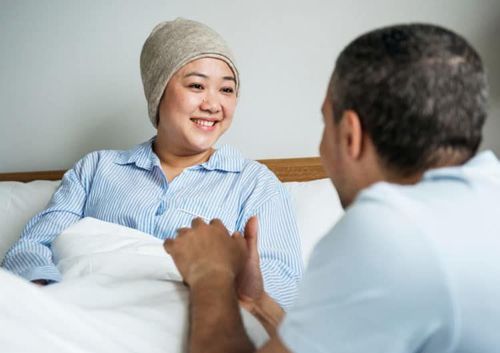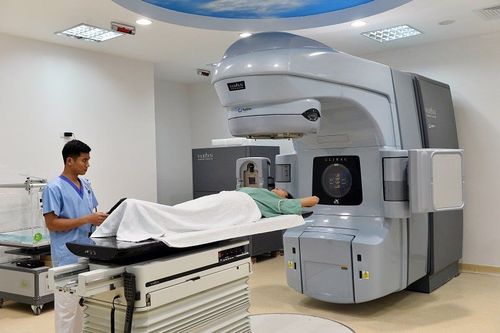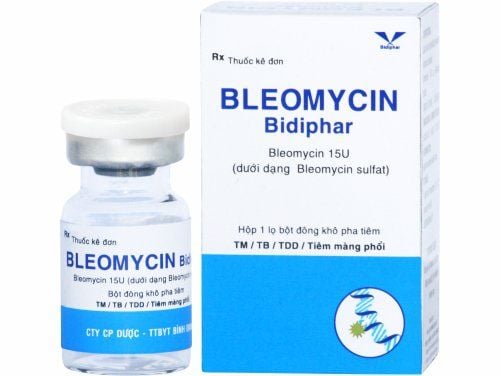This is an automatically translated article.
People with cancer often have severely weakened immune systems, so the risk of infection is very high. Therefore, vaccination against certain strains of viruses is extremely important for cancer patients. However, which vaccines are appropriate and safe for them?
1. Should people with cancer get the vaccine?
Generally, health care professionals recommend that vaccines are not given during chemotherapy or radiation therapy for cancer, except for the flu shot. This is mainly because vaccines need an immune system response to work effectively, while the immune systems of people with cancer are often severely weakened by the treatment of the disease.
In the human body, the immune system consists of a group of cells, tissues and organs that work together to fight infections from harmful bacteria and viruses. On the other hand, the cancer condition and the measures used in cancer treatment can weaken the patient's immune system, preventing them from working as well as they should.
For people with weakened immune systems, careful consideration is required before choosing a vaccine: is the vaccine safe or not? Ideally, cancer patients should consult with a specialist about vaccination, risk factors for using vaccines, as well as the best time to get vaccinated.
In fact, some vaccines can be used to help a cancer patient's immune system respond to and fight off infections or diseases in general.
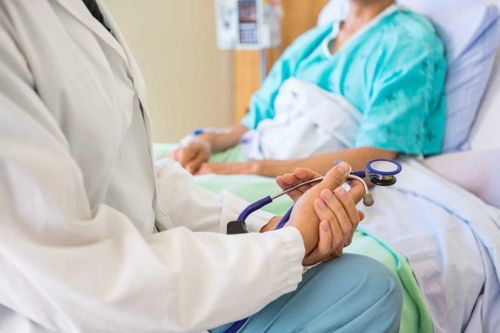
Người bị ung thư nên tham khảo ý kiến của bác sĩ trước khi tiêm vắc-xin
2. Live and inactivated vaccines for cancer patients
*For people with cancer: in general, cancer patients or anyone with a weakened immune system should not get vaccines that contain live viruses, as they can cause infection and endanger the patient's life. To find out which vaccines are safe for you, you should seek the help of your doctor before choosing to get vaccinated against diseases.
*For families and carers of cancer patients: if you live with or spend a lot of time caring for people with cancer, your immune system is also at risk. So getting vaccinated can be an effective way to help prevent some serious health problems. Currently, most vaccines are made for all ages, but there are some exceptions. At this point, your doctor will be your trusted advisor to determine which vaccines are safe for you.
3. Influenza vaccination for cancer patients
It is recommended that most people get a flu shot each year to prevent infection with the flu virus. For cancer patients with severely weakened immune systems, flu prevention is essential, as influenza viruses can attack, wreak havoc on the immune system, and be life-threatening. sick.
Cancer patients should get an inactivated influenza vaccine (vaccine containing a dead/inactive influenza virus) every year. Some studies have shown that the flu virus can change continuously from year to year, so vaccines will also vary slightly to achieve the most protection. Also, the best time to get the flu vaccine will depend on the type of cancer and the individual patient's treatment.
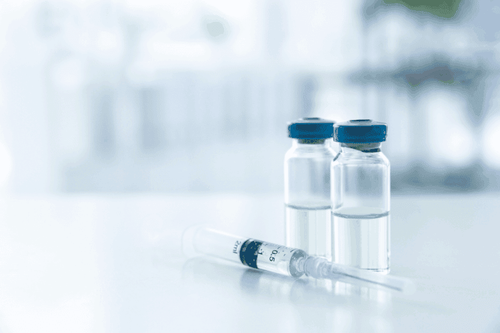
Bệnh nhân ung thư nên tiêm phòng vắc-xin cúm bật hoạt định kỳ hàng năm
In addition, some nasal spray flu vaccines contain live attenuated versions of the virus. Therefore, people with cancer should not get the flu shot through this vaccine. The nasal spray flu vaccine can be safely used for family members of cancer patients, unless the patient has a severely weakened immune system or is in intensive care. . For example, you should not get the nasal spray flu vaccine if a family member has recently had a stem cell or bone marrow transplant.
In addition, people who live with or care for someone who are at high risk for flu-related problems are also advised to get the flu vaccine. If you are being treated for cancer, family members, caregivers, and children 6 months and older living at home should get a flu shot.
4. MMR (Measles-Mumps-Rubella) vaccine for cancer patients
This vaccine is commonly used to protect people from 3 types of viral diseases, including measles, mumps, and rubella.
People with weakened immune systems such as cancer patients should not receive the MMR vaccine because it contains live viruses. However, it ensures safety for other members of the patient's family. In certain cases, your doctor may consider vaccinating you before starting cancer treatment.
In addition, if a patient undergoing cancer treatment has close contact with a person with measles, it is necessary to immediately notify the doctor for timely handling measures.

Vắc-xin MMR giúp đảm bảo độ an toàn đối với các thành viên khác trong gia đình người bệnh
5. Pneumococcus (pneumococcal pneumonia) vaccine
This vaccine can help people with weakened immune systems fight some infections of the lungs, blood or brain caused by certain types of harmful bacteria. The dose of pneumococcal vaccine will depend on your age and medical condition.
In the case of a patient undergoing a splenectomy, this vaccine can be given before surgery, or sometimes after surgery.
6. Meningococcal vaccine
This vaccine has the potential to prevent meningococcal disease – a condition that can cause meningitis or other infections. However, cancer patients should not receive this vaccine during treatment for their disease. It is usually given before treatment or after the patient's immune system has recovered.
In the case of a patient undergoing a splenectomy, meningococcal vaccine may be given prior to surgery.

Bệnh nhân ung thư không nên tiêm vắc-xin viêm não mô cầu khi điều trị
7. Polio vaccine
This is a vaccine used to prevent polio – a disease caused by a virus that is associated with severe illness and physical disability.
Children with weakened immune systems, as well as their relatives or people living with them, should be vaccinated with the inactivated polio vaccine only. Some previous oral poliovirus vaccines contain live virus, so people with weakened immune systems and cancer patients should not use them to prevent infection.
8. Varicella (chickenpox) vaccine
This vaccine works to prevent chickenpox in people who have never had the disease. However, this is a live virus vaccine, so it is not recommended for people with weakened immune systems, people with leukemia, lymphoma, or any related cancer. to the bone marrow and lymphatic system, unless these conditions have been treated and controlled.
In addition, family members of people who are at high risk for a weakened immune system will need to be vaccinated against chickenpox. On the other hand, people with weakened immune systems who come into close contact with someone who has chickenpox should tell their doctor right away.
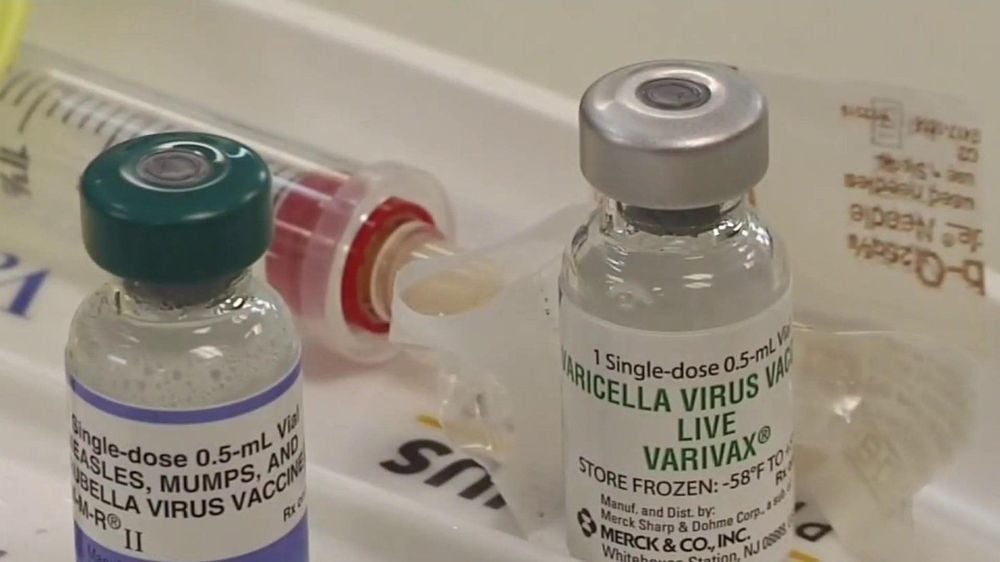
Vắc-xin thủy đậu không được khuyến cáo sử dụng cho người có hệ miễn dịch kém
9. Shingles vaccine (varicella zoster)
This vaccine is usually given to people over the age of 50 who have had chickenpox or shingles before to prevent shingles and relieve severe symptoms caused by shingles.
If you have a weakened immune system due to cancer or cancer treatments, consult your doctor to choose the right shingles vaccine. Also, tell your doctor right away if you have been in close contact with someone who has chickenpox or shingles.
Vinmec Oncology Center is one of the centers in Vietnam that is fully equipped with modern diagnostic facilities such as: PET/CT, SPECT/CT, MRI... blood marrow analysis, histopathology , immunohistochemistry, genetic testing, molecular biology testing. As well as a full range of targeted drugs, the most advanced immunotherapy in cancer treatment.
Treatment of multimodal cancer with surgery, radiation therapy, chemotherapy, targeted therapy, immunotherapy, new treatments such as autologous immunotherapy, thermotherapy... After diagnosis Accurately diagnose the disease, stage, the patient will be consulted to choose the most appropriate and effective treatment method.
The treatment process is always closely coordinated with many specialties: Diagnostic Imaging, Biochemistry, Immunology, Cardiology, Stem Cell and Gene Technology; Department of Obstetrics and Gynecology, Department of Endocrinology, Department of Rehabilitation, Department of Psychology, Department of Nutrition... to bring the highest efficiency and comfort to patients.
If you have a need for consultation and examination at Vinmec Hospitals under the national health system, please book an appointment on the website for service.
>> See more: Ingredients and uses of functional foods Fucoidan - Article by Pharmacist Nguyen Thi Thanh Hoa - Pharmacist Pharmacy - Vinmec Times City International General Hospital
Please dial HOTLINE for more information or register for an appointment HERE. Download MyVinmec app to make appointments faster and to manage your bookings easily.
Reference source: cancer.org




